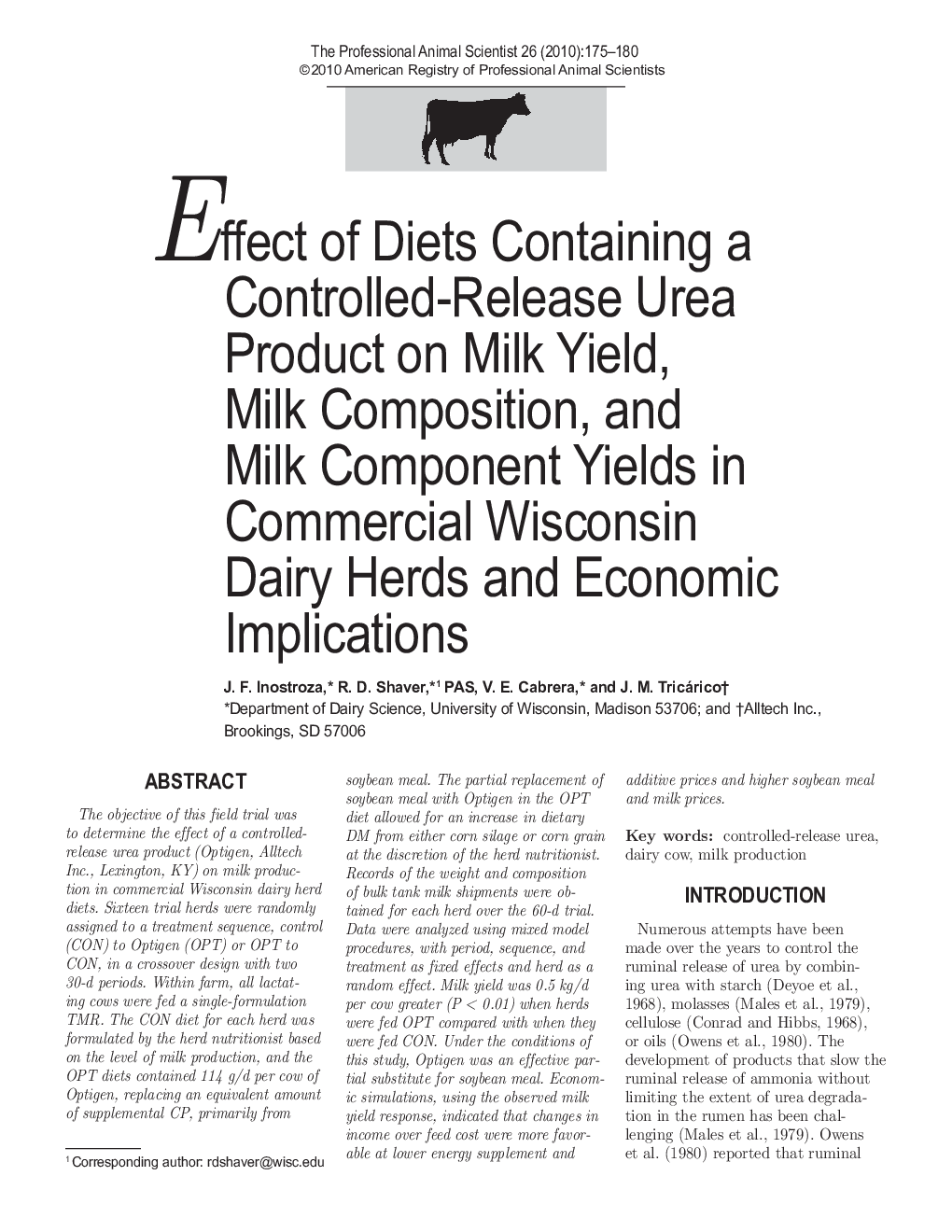| Article ID | Journal | Published Year | Pages | File Type |
|---|---|---|---|---|
| 2454106 | The Professional Animal Scientist | 2010 | 6 Pages |
Abstract
The objective of this field trial was to determine the effect of a controlled-release urea product (Optigen, Alltech Inc., Lexington, KY) on milk production in commercial Wisconsin dairy herd diets. Sixteen trial herds were randomly assigned to a treatment sequence, control (CON) to Optigen (OPT) or OPT to CON, in a crossover design with two 30-d periods. Within farm, all lactating cows were fed a single-formulation TMR. The CON diet for each herd was formulated by the herd nutritionist based on the level of milk production, and the OPT diets contained 114Â g/d per cow of Optigen, replacing an equivalent amount of supplemental CP, primarily from soybean meal. The partial replacement of soybean meal with Optigen in the OPT diet allowed for an increase in dietary DM from either corn silage or corn grain at the discretion of the herd nutritionist. Records of the weight and composition of bulk tank milk shipments were obtained for each herd over the 60-d trial. Data were analyzed using mixed model procedures, with period, sequence, and treatment as fixed effects and herd as a random effect. Milk yield was 0.5Â kg/d per cow greater (PÂ <Â 0.01) when herds were fed OPT compared with when they were fed CON. Under the conditions of this study, Optigen was an effective partial substitute for soybean meal. Economic simulations, using the observed milk yield response, indicated that changes in income over feed cost were more favorable at lower energy supplement and additive prices and higher soybean meal and milk prices.
Related Topics
Life Sciences
Agricultural and Biological Sciences
Animal Science and Zoology
Authors
J.F. Inostroza, R.D. PAS, V.E. Cabrera, J.M. Tricárico,
